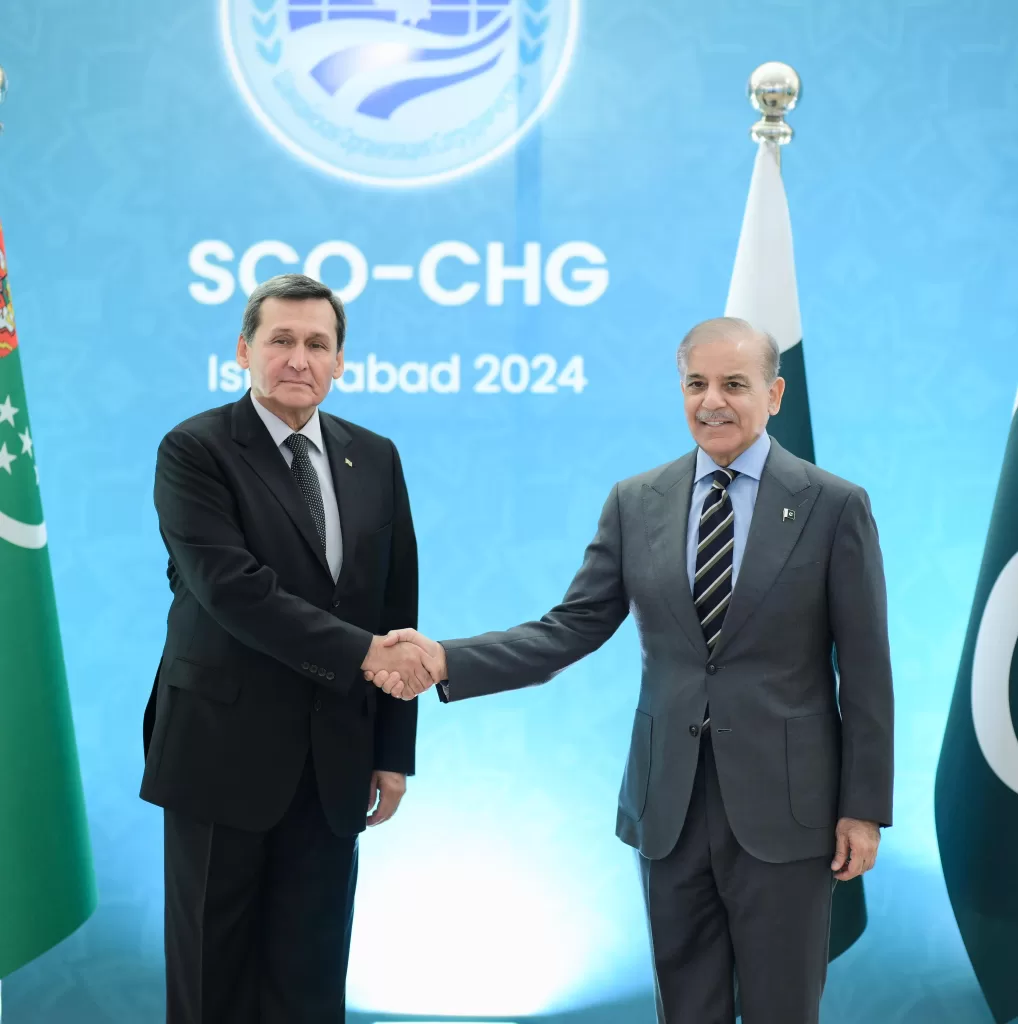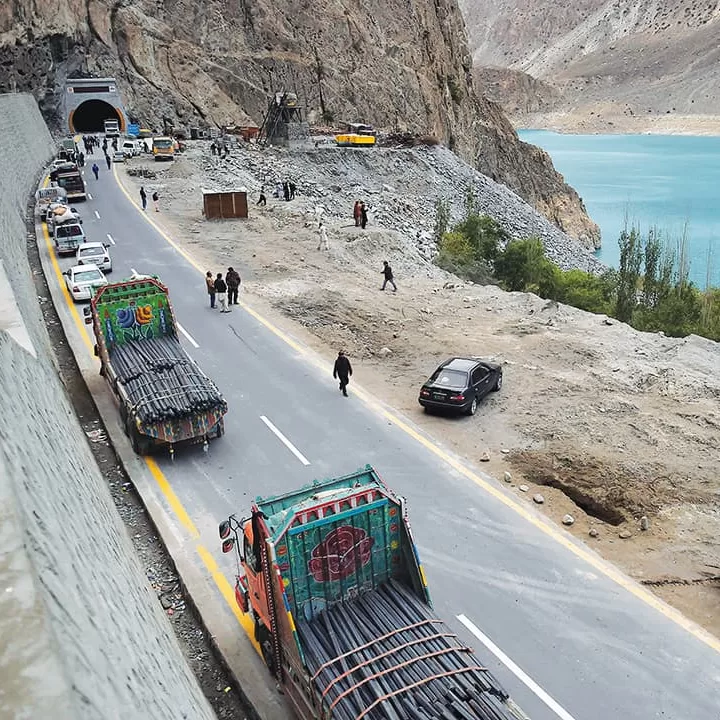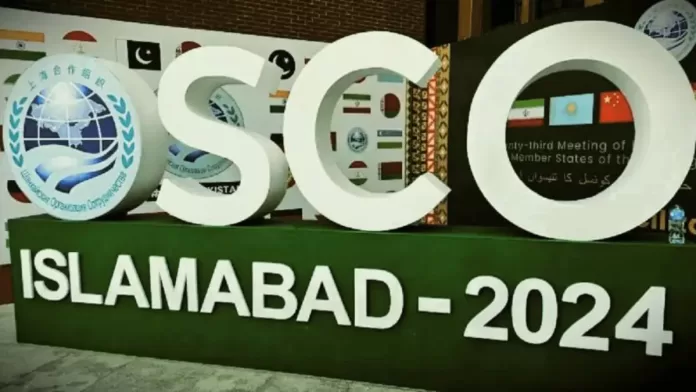The 23rd Shanghai Cooperation Organisation (SCO) Council of Heads of Government Summit was held in Islamabad from 15 to 16 October 2024 with the theme “Strengthening Multilateral Dialogue; Striving towards a Sustainable Peace and Prosperity”. Key agenda points included regional security, counterterrorism and improving security, fostering connectivity networks, trade, investment, economic opportunities and climate change issues. It implied Pakistan’s growing significance in regional dynamics as the summit was a golden opportunity for Pakistan to show its capabilities in diplomacy, strategic affairs and economy.
Member states that attended were the Prime Ministers of the Republic of Belarus, Republic of Kazakhstan, Premier of the State Council of the People’s Republic of China, Prime Minister of the Islamic Republic of Pakistan, Prime Minister of the Republic of Tajikistan, Prime Minister of the Republic of Uzbekistan, Chairman of the Cabinet of Ministers of the Kyrgyz Republic, Minister of Foreign Affairs of the Republic of India and Minister of Industry, Mine and Trade of the Islamic Republic of Iran.

The meeting was also attended by SCO Secretary-General, Director of the Executive Committee of the SCO Regional Anti-Terrorist Structure, Chairman of the National Part of the SCO Business Council and Chairman of the SCO Interbank Association Council. The Prime Minister of Mongolia (Observer State) and Minister of Foreign Affairs of Turkmenistan attended as guests. The measure of success for any event where delegates from different parts of the world are arriving includes their readiness to come to the host country, their comfortable stay, conducive environment in which they can express themselves and returning happily. While in all these domains, the delegates expressed satisfaction and contentment for the summit, the real success of any summit where leaders and intellectuals from different countries gather is the outcome that is derived. The joint communique that was issued post the summit includes almost every aspect of the socio-economic interaction between the member states.
Additionally, it also addresses the issues that this region is confronted with, such as terrorism and security. But the most important issue that can accrue real dividends for the member states is of connectivity. China realised this aspect a decade back and introduced the One Belt One Road (OBOR), which later became the Belt and Road Initiative (BRI). However, connectivity between member states is still lacking owing to variety of issues and it is but certain that unless the connectivity is achieved, cooperation, integration and prosperity that this region merits cannot be realised. In September 2000 the ‘International North South Transport Corridor’ was established in which many of the SCO countries are also members. This multi-modal trade corridor of ship, railway and road offers broader connectivity between CAR’s and Eurasia and it is here that Pakistan and many other member states, while keeping in view challenges and potential of the global economy, can develop commerce models for these corridors.
It is fact that forty percent of the SCO member states are landlocked and have the right to access the sea via their neighbouring countries. Pakistan provides them the shortest route to the sea and ocean, however, to reach the sea, land access first needs to be established and secured. In case of these landlocked countries Afghanistan affords them an economical land route which leads to Pakistan but for passing through Afghanistan, internal stability there is mandatory. Afghanistan is an Observer State of SCO but has not been participating in the Summit post the Taliban takeover since 2021, owing to their objections to the provisions of the SCO-Afghan agreement. It is pointless to mention that until the Afghan government’s willingness to join SCO and normalisation of its internal security situation, this connectivity between SCO member states cannot be fully optimised.
It is also important to understand that connectivity is not restricted to only transportation of goods between the states but is achieved wholly when business communities, intellectuals, students, media, artists, historians and normal people are connected. It is achieved only when people understand the culture, thinking and working styles of each other and can interact with each other with comfort and ease. All this can only be possible when countries develop stakes in other countries which will bring people closer and closer. When BRI was conceived the motive behind was connectivity of the region in multifarious aspects. In the case of CPEC, this connectivity between Pakistan and China is visible and with the inflow of Chinese engineers and officials to Pakistan more avenues opened up for Pakistanis also to take advantage of the Chinese expertise. It is observed that during the past ten years, besides completion of major infrastructural and energy projects under CPEC there has been substantial increase in the interaction between students, businessmen, intellectuals from both sides. That is how people to people contact have taken place between these two countries. The same spirit is expected and envisaged through the SCO platform.

The key to connectivity via Afghanistan lies in engaging them which is not that simple. First, the current Afghan regime is not on good terms with most of the world and have not been formally recognised by many countries, therefore engagement with them is little tricky. And also even if they are engaged, the situation inside Afghanistan is quite complex and not fully under control of the current regime. To bring peace in Afghanistan, there will have to be concerted and sincere efforts and perhaps capacity building of the incumbent regime which is at odds with the world. There is a requirement on part of the Afghan government to realise the potential that SCO promises for them and be ready to reap the benefits. Another aspect is the lack of exposure to prosperity that the current Afghan generation in may have. The country is at war since year 1979 and has not been able to stabilise itself. Hosting this summit was a golden opportunity for Pakistan as it has a lot to offer to the SCO countries. Our youth is the most powerful agent of cohesive society and holds the ability to bring pragmatic changes to the country, we have a “youth bulge”, a very talented human resource which is in demand all around the world. They are skillful in emerging technologies, especially AI. This bounty can be exchanged with the SCO countries and allow us to share each other’s experiences. Agriculture is one arena where the experience of other countries can be made use of by Pakistan.
With the changing climatic conditions and shifting times of crops, Pakistan can learn a good deal of techniques for adjusting to its domestic demands. There are numerous historical and religious sites that Pakistan possesses and tourism is therefore one aspect that carries great potential for Pakistan as well as the other SCO countries. One rare finding is that most of the population of the landlocked countries has not enjoyed sea and coasts; Pakistan has a beautiful coastline which can be capitalised upon to promote tourism. Above all, Pakistan has a very rich experience in matters of security and since the whole region is afflicted with the menace of terrorism, Pakistan’s experience can be of great value to them.
The above are but a few areas that can be of some value to the SCO in general. However, with our focus on improving upon economy, there will be many more aspects that economic experts can identify and work upon. The establishment of the Special Investment Facilitation Council (SIFC) at this most opportune time proves to be a good omen which facilitates and simplifies investments by foreign entrepreneurs. No doubt we have capacity to capitalise upon and to chart a prosperous future not only for the country but also for the region.





